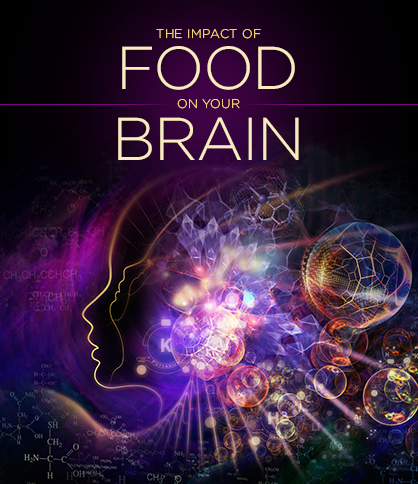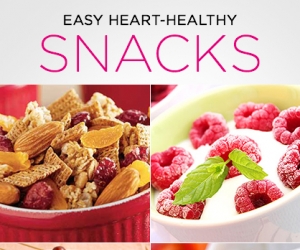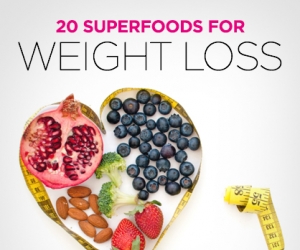Brain Foods: What Your Eat Affects Your Mood
Your mood is impacted by the food you eat
What you eat does matter – both to your body and your brain. Eating the right foods can improve brain function and improve your mood. Find out what foods are the best for your brain.


Choose the right foods
The right diet can protect brain cells and prevent depression and memory problems, according to Dr. Chris Aiken, director of the Mood Treatment Center in Winston-Salem, NC. Dr. Aiken’s research focuses on the diagnosis and treatment of mood disorders.
“These benefits build up over weeks and months – much as exercise does – so it’s unlikely that changing your diet the night before an exam will impact your mental performance the next day,” Dr. Aiken said. “Generally what is good for the brain is good for the body. Take fat and sugar – too much of these can impede brain growth and age brain cells in ways that are similar to the effects of clinical depression.”
The top brain food is a healthy diet rich in vegetables, proteins, whole grains, nuts and fish. A good example is the Mediterranean diet. Dr. Aiken’s top four brain foods are:
Salmon. Omega-3’s from this fish are a building block for brain cells, helping to coat and protect them. Without omega 3’s, the brain substitutes other ingredients, which can make cells more brittle and prone to depression. Salmon is the richest source of omega-3’s: two servings of salmon a week can get you as much as a daily serving of other fish. Other sources of omega 3’s include dark green, leafy vegetables such as spinach and kale, kiwi fruit and butternuts.
Blueberries. In one study, a daily meal of blueberries helped mice learn faster and increased the growth of brain cells in the memory center. Flavanoids seem to be the key ingredient behind blueberries’ benefits, and they are also found in black, green and Oolong tea; bananas, strawberries, citrus fruits, tomatoes, parsley and kale.
Curcumin. This Indian spice is known to improve brain function and may help prevent dementia (the rate of dementia is lower in India). It is found in tumeric.
Probiotics. Surprisingly, these healthy bacteria are not only good for digestion – they help brain function as well. Specifically, a combination of the Lactobacillus helveticus and Bifidobacterium strains is known to reduce anxiety. Two brands which feature those strains are Serolife and Lallemand’s Probio’stick. There are lots of yogurt-based foods which are enhanced with probiotics.

More brain foods
Peggy Kotsopoulos, a registered holistic nutritionist, shared her top brain foods:
SaviSeeds. The brain is mostly made up of fat. And it's the type of fat that's important. Omega-3 fatty acids improve the communication of neurotransmitters (like serotonin) so information is sent and received efficiently and fluidly, increasing mental acuity and cognitive performance. SaviSeeds contain the highest plant-based source of omega-3 fatty acids. And being high in protein and fiber, too, they make the perfect snack.
Rosemary. The aromatic compounds in rosemary show neuroprotective effects in the brain, which may play a role in the prevention of neurodegenerative brain disorders. Research suggests these compounds increase blood flow to the brain, having a stimulating effect on the mind. Studies found that just the scent of rosemary improves performance in speed and accuracy tests and improves memory and alertness.
Broccoli. Aside from its infinite list of health benefits, the winning combination of Vitamin K and Choline gives broccoli a brain-boosting A-plus. Choline helps in brain development and may have a role in retrieving stored memories, while vitamin K helps to develop and strengthen cognitive function. Plus, broccoli provides nearly a quarter of your daily folate - another important brain-boosting nutrient.
Wild Blueberries. Wild blueberries are rich in a phytochemical antioxidant, anthocyanin, which studies suggest help reverse age-related memory deficits. Anthocyanins are what give berries, fruit and veggies their dark red, purple, or blue colour. And their powerful antioxidant action helps protect the brain from oxidative damage (a factor in age-related memory decline). Anthocyanin has anti-inflammatory properties, which may help to reduce inflammation in the brain, boosting cognitive functioning and protecting the brain from short-term memory loss.
Sunflower Lecithin. Is extracted from sunflower seeds and rich in phosphatidyl choline, which is a precursor to acetylcholine production. Acetylcholine is the key neurotransmitter that is responsible for memory. Even if you already have a memory stored in your brain cells, but don't have enough circulating acetylcholine, you won't be able to recall or 'pull' that memory from your files. Try adding sunflower lecithin to homemade pancakes, smoothies or baked goods for memory-boosting brain power.
Walnuts. Not only do they look like brains, but these nuts pack a powerful brain-boosting punch. Research suggests that walnuts can boost memory and brain function. Rich in Omega-3 fatty acids, antioxidants and vitamin E, walnuts deliver key nutrients that help improve chemical messenger communication in the brain, protect the brain from oxidative damage and improve cognitive functioning, respectively.
Quinoa. The brain needs glucose to function optimally. The best way to get that is through complex carbohydrates, such as quinoa. Since quinoa delivers slow releasing carbs, coupled with fiber and protein, it provides stable, energizing fuel for your brain. Plus it's loaded in B-vitamins which are essential for brain function.
Asparagus. This long green veggie is rich in brain-boosting vitamin K, and also provides a hearty dose of folate (vitamin B9) - one cup provides roughly 65% of your recommended daily value. Studies show that folate (folic acid in its supplement form) intake supports better cognitive speed in processing information, and improved performance on memory tests.
Red Beets. Like blueberries, beets also contain anthocyanins, which help boost cognitive function and prevent memory decline. But beets are also are a great source of nitrates which help increase blood flow to the brain. The more oxygen-rich blood flowing to the brain, the better it is at information processing and cognition.
Tagged in: health, superfoods, brain,



